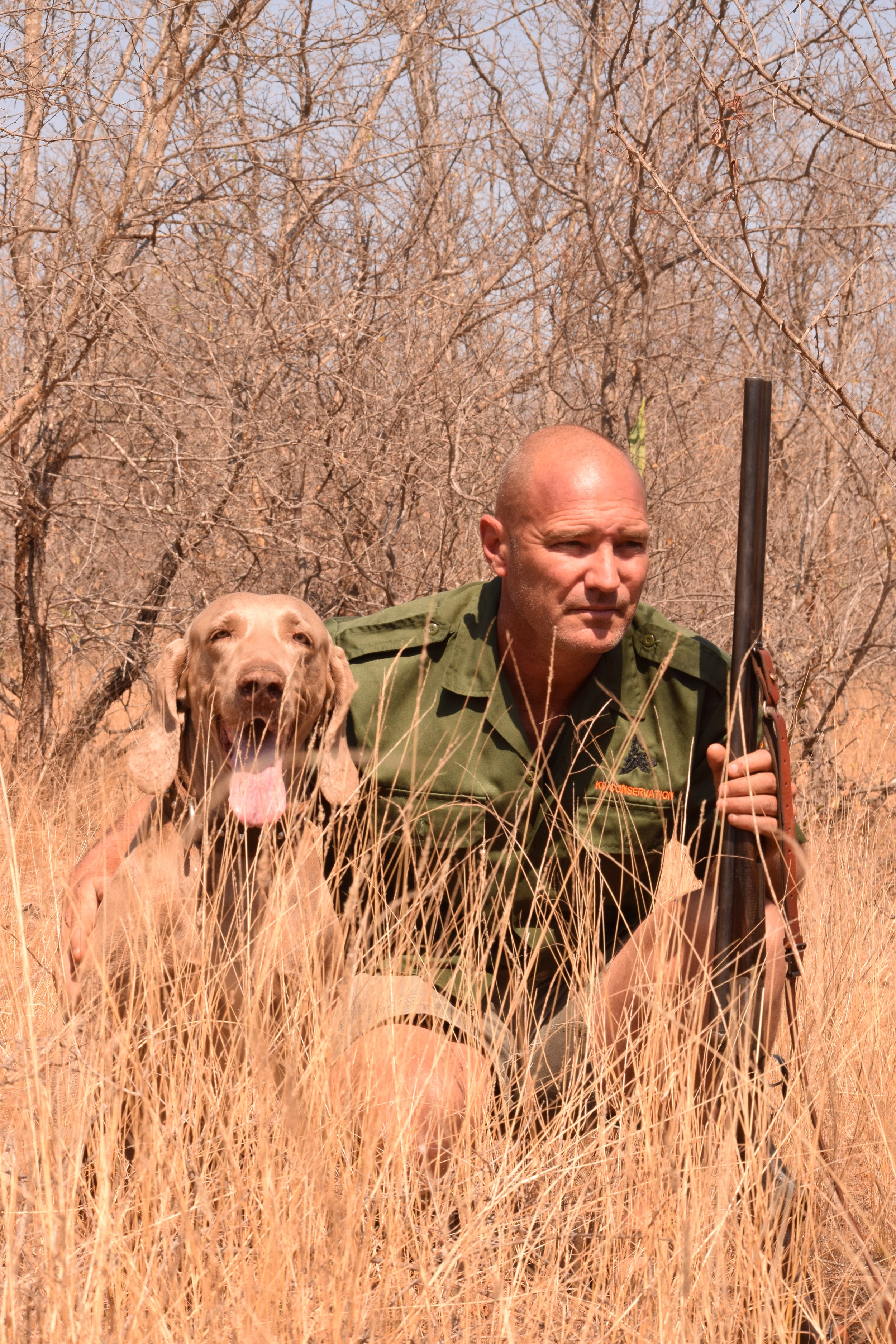K9 Conservation provides logistical backup and support to conservation areas and game parks through the deployment of elite, highly trained, specialized working dog units.
The threat of poaching and illegal trade in endangered species of wild animals is at an all-time high, however, one of the most effective ways to counteract this threat, is to implement the use of working / patrol dogs out in the field.
Working dogs in protected conservation areas can perform a multitude of different functions ranging from tracking animals (injured or otherwise) to tracking and apprehending human suspects as well as detecting contraband, firearms, bullet cases and even snares.
It is proven that once working dogs are deployed onto a protected area, the news quickly spreads amongst the poachers and criminal syndicates alike, resulting in the level and frequency of poaching incidents (and often other crime) dramatically reducing.
“K9 Conservation has assisted in the procurement of working dogs and the training of K9 Units in several countries, namely; Central African Republic, Zimbabwe, Mozambique, Namibia, and India.”
Conraad de Rosner has been working with his dogs in the conservation category for the past 20+ years and is thoroughly experienced in the utilisation of working dogs in the natural environment:
Detection of rhino horn, ivory and other wildlife contraband
Indication of snares and other poaching/ illegal hunting devices
Animal carcasses or remnants detection
Searching for illegal contraband used for "muti" or traditional medicine and bush meat
Searches of vehicles and premises
Tracking wounded animals
Assisting wildlife vets with following darted animals
Detection of scat and other indications of wildlife species for scientific research purposes
Conraad de Rosner
(Director)
Affiliates
Game Rangers’ Association of Africa
Conraad is a member of the GRAA
The Game Rangers Association of Africa (GRAA) was founded in 1970 as a non-racial, non-political organisation. The Game Rangers Association of Africa is a properly constituted association and has been registered as a non-profit organisation.
The Game Rangers Association of Africa is a long-standing and well-established defined community of practice. The Game Rangers’ Association of Africa provides support, networks and representation for game rangers across Africa. The Game Rangers Association of Africa believes that game rangers should operate with pride, and with passion for their profession whilst promoting best management practices in ensuring the conservation of our natural heritage. The Game Rangers Association of Africa believes that the continued future existence of Africa’s wilderness and its wildlife is ultimately and irrevocably linked to the expertise, ethics and motivation of those tasked with the “on the ground” protection and management of this priceless asset. This involves inter alia the conservation of the natural heritage, and the promotion of sustainable utilization of natural resources, ecotourism, community involvement and environmental education.
The Ranger in Africa has many real needs, but without real support and relevant training the Ranger will fail, and Africa’s priceless natural and cultural heritage will be lost forever.
Conraad pursued his career in wildlife management and -conservation in 1991 and has developed extensive experience in the field with game reserve management, game capture and counter-poaching. He was a police reservist and was part of the Special Protected Species Unit. He is a member of the Game Rangers’ Association of Africa and has more than 20 years experience working with dogs in Conservation.
Over the years, Conraad and his dogs have had many successes – the most newsworthy perhaps being the successful tracking and recapture of Panjo the tiger in Mpumalanga during 2010 with his first anti-poaching dog, Zingela.
Without doubt, our numerous criminal arrests have been directly attributable to the fact that Conraad and his team’s highly trained and experienced dogs played a lead role in the investigations and discoveries of illegal contraband trade and poaching that had taken place.


